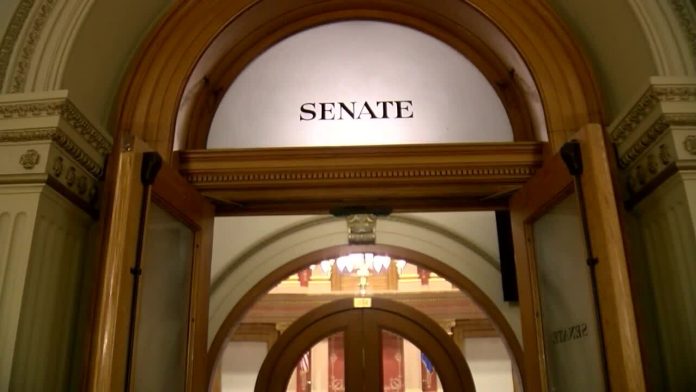Pueblo, CO – In a rare move, the Colorado Senate voted on Friday to override Governor Jared Polis’ veto of a controversial bill aimed at regulating social media platforms. The decision marks a significant moment in Colorado’s legislative history, as it would be the first time in 14 years that both chambers of the legislature have successfully overridden a gubernatorial veto.
Senate Bill 25-086, which passed the Senate with a 29 to 6 vote, seeks to impose new requirements on large social media companies to monitor and remove accounts involved in illegal activities such as the sale of drugs, guns, and the trafficking or exploitation of minors. The bill would also mandate that social media platforms comply with law enforcement warrants and provide annual reports detailing user policy enforcement.
Governor Polis, who vetoed the legislation on Thursday, expressed concerns that the bill would undermine privacy rights, limit freedom of speech, and create burdens on innovation. In his veto letter, he emphasized that the bill would force private companies to enforce state laws, potentially leading to wrongful deplatforming of users without proper safeguards.
“While this law is well-intentioned, it imposes sweeping requirements that social media platforms, rather than law enforcement, must enforce state law,” Polis wrote. “Crime is not a First Amendment right, but neither should this bill be used to justify actions that might erode fundamental freedoms.”
Despite the governor’s veto, lawmakers in the Senate made it clear that they would not back down. “It was important for the Senate to override the governor’s veto because this is a great bill, and it’s crucial that we protect the kids of Colorado,” said State Senator Lisa Frizell, a Republican from Castle Rock and one of the bill’s primary sponsors. “These are not First Amendment rights. Crime is not a First Amendment right,” she added, referring to the online trafficking and drug-related activities the bill aims to curb.
The bill’s supporters, including Democratic Senator Lindsey Daugherty of Arvada, argued that the law has broad bipartisan support and is necessary to protect children from online dangers. “We had a veto-proof majority in both chambers before it was vetoed,” Daugherty noted. “This message is about protecting kids, and about holding social media companies accountable for the billions they make while our children are harmed.”
Following the Senate’s override, a spokesperson for the governor reiterated his concerns, stating that while he supports efforts to fight illegal activity online, the bill’s current form is “unworkable.” The statement emphasized that the bill lacks sufficient privacy protections and could lead to abuses by social media companies in the process of removing users. Polis also suggested that his office had proposed changes to the legislation that would have strengthened its enforcement mechanisms without infringing on constitutional rights.
The debate surrounding Senate Bill 25-086 has sparked passionate reactions from both sides. Matt Riviere, who lost both of his sons to fentanyl poisoning in 2021 after they purchased drugs on Snapchat, strongly supports the bill. “We are losing so many kids to drugs, sex trafficking, and illicit guns,” Riviere said. “This bill is incredibly important to me and other affected families.”
On the other hand, Hazel Gibson, political director for ProgressNow Colorado, expressed concerns about the bill’s potential to violate First Amendment rights. “Access to social media is a First Amendment right,” she argued, “and this bill would force social media platforms to remove users, which could lead to costly legal battles.”
Dawn Reinfield, executive director of Blue Rising, disagreed with Gibson, asserting that illegal behavior is not protected by the First Amendment. She argued that the bill would not infringe on free speech but rather hold social media companies accountable for hosting harmful content.
The veto override marks a rare instance of conflict between Governor Polis and the state legislature, underscoring the growing debate over how best to regulate social media companies. While the bill has not yet passed the House, which is expected to vote on it soon, the Senate’s action has set the stage for a broader conversation about the balance between protecting children from online harm and safeguarding civil liberties.
As the bill moves forward, both sides of the debate are bracing for further legal challenges and political fallout, with implications that could stretch far beyond Colorado’s borders.



